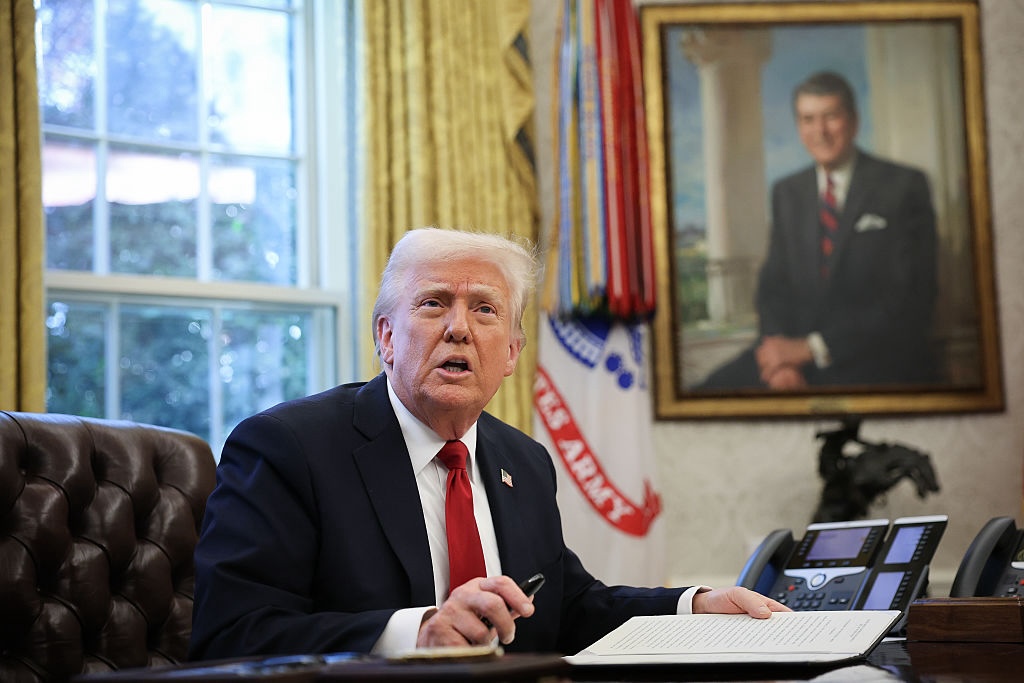The White House has announced measures aimed at reducing the cost of cars for U.S. consumers, easing the effect of tariffs on imported cars imposed by the Trump Administration.
“It’s a little bit of help,” President Trump, who will mark his first 100 days in office during a rally in Michigan, told reporters Tuesday. “We just wanted to help them enjoy this little transition, short-term.”
[time-brightcove not-tgx=”true”]
In late March, Trump announced a 25% tariff on all imported automotive goods into the U.S. which went into effect on April 3. Trump had also declared tariffs on steel and aluminum, which are key materials for auto production. The measures announced on Tuesday mean that these tariffs will not be additional to the 25% rate on cars, a White House spokesperson said, easing potential production costs for U.S. manufacturers.
A further 25% tariff on imported car parts is still set to go into effect on May 3, but there are expected to be some reimbursements to reduce the impact for consumers.
Read more: What Are Tariffs and Why Is Trump In Favor of Them?
In a statement to Reuters, Commerce Secretary Howard Lutnick said: “This deal is a major victory for the President’s trade policy by rewarding companies who manufacture domestically.”
Press Secretary Karoline Leavitt said that the President will later be signing an executive order in relation to these expected measures. Without further details not yet outlined, it will likely focus on encouraging manufacturers to move operations to the U.S. in order to avoid tariff costs.
What will this mean for consumers?
Car dealerships in the United States have warned about the potential impact of auto tariffs on their businesses, and the need of passing costs on to the consumer.
After the widespread imposing of global tariffs on April 3, automakers quickly responded with temporary job cuts, halting car shipments to the States, and expected price increases.
For a number of international car manufacturers, the U.S. market makes up a large portion of their global sales. In 2024, 39% of international sales for Honda were in the U.S. For Nissan, Porsche and Kia, the U.S. made up 28% of their international sales.
With such large portions of the consumer market being U.S. based, the impact of automakers passing on the cost of tariffs could hit American buyers significantly. Economist Arthur Laffer estimated that a 25% tariff on autoparts could add an average $4,711 to the cost of a car in the U.S.
How are U.S. car makers responding?
For automakers based in the United States, the White House announcement signals optimism. The Trump Administration has put the goal of increasing U.S. production at the center of its reasoning behind tariffs, but domestic companies are likely to still feel the hit of tariffs.
Manufacturers including Ford, General Motors and Stellantis will see this as potential respite on higher production costs. An industry report from the Center for Automotive Research estimated that tariffs could cost these three manufacturers $42 billion.
In a statement, Stellantis Chairman Elkann said: “While we further assess the impact of the tariff policies on our North American operations, we look forward to our continued collaboration with the U.S. Administration to strengthen a competitive American auto industry and stimulate exports,”
General Motors CEO Mary Barra also welcomed the measures from the Trump Administration. She said in a statement: “We believe the President’s leadership is helping level the playing field for companies like GM and allowing us to invest even more in the U.S. economy.”

